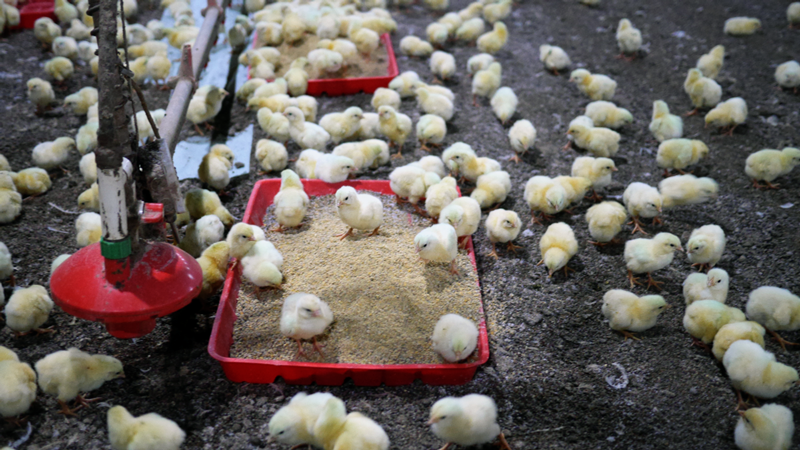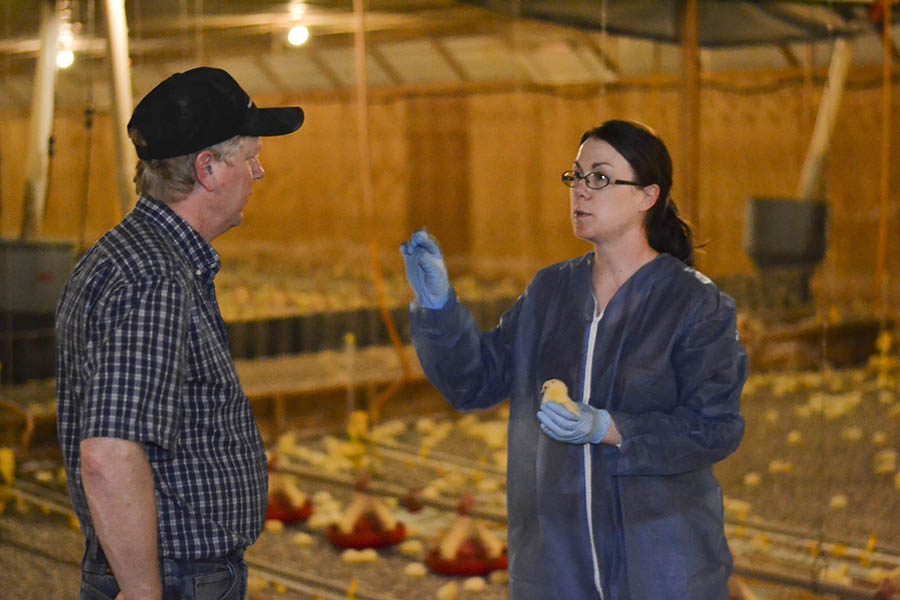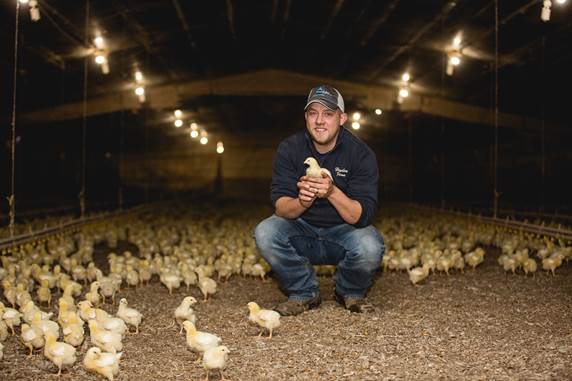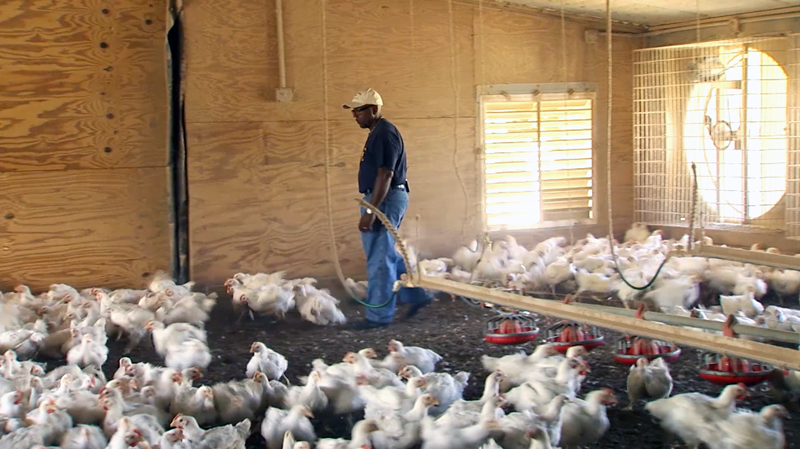What is the #1 Priority of Chicken Farmers?
The health of the flock is the number one priority of chicken farmers. After all, it’s not only the right thing to do – it makes good business sense!
GETTING READY FOR THE NEW FLOCK

Even before baby chicks arrive at the farm, farmers spend ample time getting the barns, or growout houses, ready for the next flock. This includes cleaning, or windrowing, which pasteurizes the poultry litter. The heat from composting process kills unwanted pathogens.
Unless there is disease or a biosecurity issue, total replacement of the poultry litter is not required for every new flock. The litter can be recycled over several flocks so as to minimize impact on the environment due to waste disposal.
Contrary to popular belief, chickens raised for meat (broilers) are never raised in cages.
CHECKING IN ON CHICKENS
Like our website’s namesake, chicken farmers check in on their chickens at least three times a day. This is to ensure the airflow, temperature and the wellness of the chickens is at the highest standard.
We know through extensive study of chickens that they are most comfortable living in a precise temperature range and modern chicken barns are equipped to keep temperatures right within this range, regardless of how hot or cold it is outside. At week three, for example, houses are kept about 75 degrees F and the temperature will gradually decrease to about 64 degrees F by week seven, to keep them cooler as they grow bigger and emit more heat.
Another important part of checking in on the flock is making sure they have easy access to fresh food and water. Without that, the chickens cannot grow. If they do not grow, they cannot go to market. If they don’t go to market – farmers can’t earn a living!
SAFETY, FIRST!

The health and welfare of the flock is of utmost importance, which is why biosecurity and veterinary care are key parts of keeping the flock healthy.
Any visitors to the farm are must wear coveralls, boots, and hairnets. Before entering the growout house, visitors step in to a dry chlorine footpan to kill any bacteria that could be tracked in. Chicken farmers have “on the farm” clothing and shoes that are worn only on the farm.
Licensed veterinarians, who have a professional obligation to protect the chickens’ health and welfare, provide comprehensive health care programs for every commercial broiler chicken flock and administer treatment when needed.
Just like people, animals sometimes get sick, and treating illness is a responsible part of animal care. When this happens, farmers work with animal health experts and veterinarians to determine if an antibiotic is needed. The vast majority of the antibiotics that we use are never used in human medicine, and we’re taking steps to phase out those most critical to human medicine.
If a broiler can no longer get to feed or water because it is sick, it is necessary to humanely euthanize the bird to relieve its suffering.
WHAT’S GOOD FOR THE CHICKEN IS GOOD FOR THE FARMER
Put simply, a farmer’s livelihood depends on the health of his or her flock. It is their job to ensure their chickens needs are met so that they can comfortably grow to healthy market weight – to feed America’s families.
“The care that the chickens are given is second to none on any other way a chicken can live. Farming is composed completely of passion, we put our hearts and souls in what we do and people need to experience just a taste of that passion.” –Daniel Hayden, Kentucky Chicken Farmer

